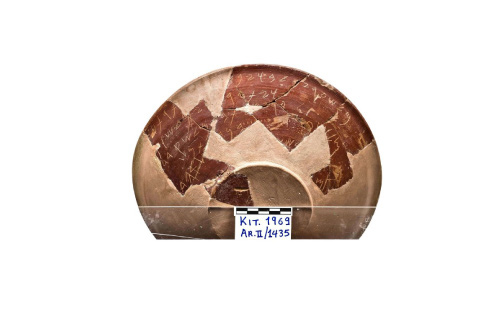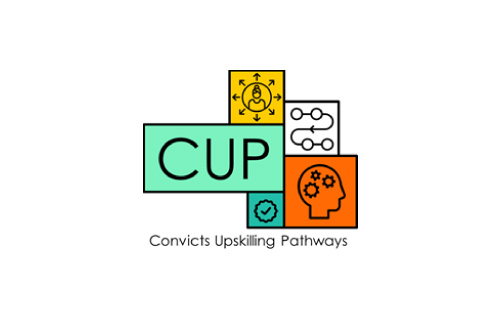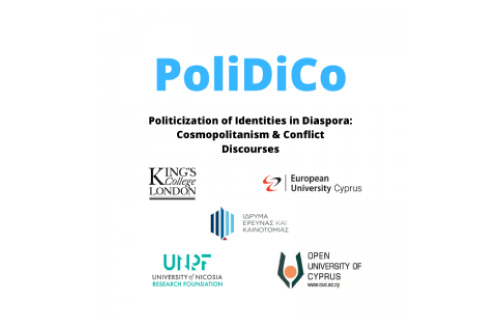SOSCIEATH has a current research funding of more than 820,000 Euros of a total of 13 funded research projects. Currently, a total of 9 Research Associates in the research projects of the Centre.
Objectives:
Objectives:to address the ongoing need for effective strategies and tools to promote reading among young people, bridging school activities with personal interests and fostering socialconnections across students of different classes, schools, cultures and countries, especially focusing on disengaged students (including students with disabilities).
Objectives: Development and implementation of an innovative practical digital toolkit and a blended training course that will help teachers use blended learning in schools based on the principles of inclusive education;foster the digital skills of teachers based on the European Framework for the Digital Competence of Educators; promote the inclusion and participation of all students in digital environments through applying the methodology of co-design among students and teachers.
Objectives: Development of knowledge and tools regarding AT for persons with ASD and/or ID, the research how current ATtechnologies can better match to employment and educational contexts as well as the development of evidence based practices and guidelines for different countries.
Objectives: to improve the quality and efficiency of learning outcomes, directly impacting the results of education and training. Specifically, it focuses on implementing new technologies, including accessibility that will enable greater experiential learning, improving the students’ employability, and reducing the skill gap with the labour market.
Professional Learning Communities (PLC) are internationally highly appreciated to serve school development and thus better pupils’ achievement. In a previous ERASMUS+ project (HeadsUP) broad experiences on establishing and developing PLCs of school principals and of teachers were gained and two important perspectives were finally deduced: (1) For real understanding what successful PLC work requires and how it is done effectively it needs to be experienced personally (2) and this experience should be provided early enough to equip teachers with methods of necessary professional development.
Thus already student-teachers should become familiar with this method during teacher education at university. Courses on practical issues at university as much as phases of internship/practicum offer the opportunity to anticipate the later jobas much as to practice PLC work and get familiar with its requirements and chances. The consortium consists of a group of experts that are highly experienced in setting up and accompanying PLCs. These partners are also experts on teacher education and bring out university courses and accompany internship/practicum on a regular basis.
They aim at bringing the knowledge of effective PLC work into university didactics by experiencing and reflecting on students PLCs. The project is to establish students’ PLCs and accompany them to provide the chance for the teacher students to experience this special form of productive cooperation for learning and professional development. The project advances the experience with this often discussed instrument of professionalization and promotes it into early teacher education and university didactics. It also shows the possibilities for full teachers to also benefit from a combinded PLC e.g. to get up-to-date by learning from current scientific knowledge that student-teachers possess.
Available statistical data show that over the past 15 years most of the OECD economies (including the EU) have experienced a large increase in the number of students in higher education. However, the proportion of science and technology students has steadily decreased during the same period. Some disciplines, such as mathematics, physical sciences, engineering and conputer technology show particularly worrying trends for female students. Although several actions have been developed to encourage girls to these studies, we continue having a gender gap in the high education fields based on stereotypes. Nowadays, when the European economies are facing a continuous transition to a more technology intensive model, the key competences in science and technology are the key to develop the economic and social model of the future and we need both women and men for a competitive Europe. EMERGENT project is focused in STEM education gender awareness and besides directly covers the social inclusion priority.
It is widely recognized that connections between research and practice in teacher education need to be strengthened (Cochran-Smith 2005; Lunenberg et al. 2014; Munthe & Rogne 2015). RECITE addresses this need by highlighting a range of responsible practices in the production and circulation of research within teacher education to build up an effective research culture between academic institutions and schools, by making recommendations for the transfer of research results into teacher education and schools. Circulation in RECITE means coherence between research and practice, through co-creation in the production and sharing of knowledge in relation to teacher education and schools.
The RECITE project will map current research in teacher education as well as researchers’ and teachers’ interests in future research topics. Needs and wishes from a school perspective will also be mapped in this relation. The aim of the mapping exercise is to clarify the current circulation of research and to work out innovative local research strategies and transnational guidelines for the future. Accordingly, the project will recommend innovative and sustainable changes in governance structures and procedures in order to improve research relevance and impact in practice. Thereby, we can enhance collaboration and coherence between research knowledge, professional knowledge in teacher education and practical knowledge in schools, using shared experiences and improving competences in all these fields.
All activities undertaken in RECITE and the resulting changes in research strategies will be illustrated in each partner institution at a local and regional level by giving concrete examples of ‘how’ these changes are made and ‘what’ results are expected to be. Results of research and of improved teaching and learning practices in schools and classrooms should be fed back into teacher education. Accordingly, teacher education will become more relevant regarding school practice and the latest research results. Teacher educators play a central role as they combine research activities, teaching and collaboration with school teachers. As a consequence of RECITE, teacher students will receive higher quality teaching, combining research and practical knowledge – RECITE will thus support teacher education in educating future practitioners (local and regional) with updated knowledge and skills.

Shared Histories: Every Object Tells a Story is a funded project that brings together museum professionals, educators, academics and students from the University College London, Institute of Education, the European University Cyprus (EUC), and the Aglanzia Middle School with the aim of developing a critical approach to working with contested heritage and multiple histories at the Cyprus Museum in Nicosia.
The project draws from critical heritage theory to find solutions to enduring and emerging global challenges brought into focus by the “refugee crisis”. Such an approach allows for an exploration of the various functions of heritage specifically in relation to negotiating issues of diverse representation, ownership, and reconciliation processes. Moreover, such an approach dismantles the barriers evident in traditional archaeological frameworks to encompass human rights, access to education and culture, protecting heritage, dislocation and trauma, and convoluted and shifting personal identities, that are especially salient to young refugees.
During the project adolescent refugees from Syria, postgraduate students, museum professionals, educators and academics will collaborate through a series of workshops, seminars, discussions and hands-on activities, to set up educational museum programs around archaeological collections. There will be a specific emphasis on the use of digital technologies to facilitate interaction, language communication and interpretation and aid in the dissemination of outcomes. These activities will lead to a better understanding of shared heritage, commonalities and the distinctive elements of diverse cultures.

CUP has an aim to design successful training modules (e.g. modules based on technical skills as a mean of
embedded learning for soft and basic skills) to enhance convicts/ex convicts potential for medium-long term employability. CUP aim at offering an evaluation kit (easy-to-use, scalar) that prison administration and third sector organizations can use to measure the progress and the impact of actions promoting primary target employability.
The main focus of the EUROPEAN SAFEONLINE INITIATIVE is the improvement of media literacy levels of children through the extensive media literacy education of their parents.
The project proposes the scaling up one of the most successful practices in the field of media literacy in Europe; a practice, that has received a number of awards and distinctions – both from the European Commission and from the relevant national authorities – due to its distinct ability to bring about impressive results in the advancement of parental media literacy levels.
The main focus of the European MediaCoach project is the improvement of media literacy levels among young people through the development of large pool of media literate professionals working with youth in schools, youth centers and in non-formal contexts like libraries and museums.
Comparative and an intersectional approach to explore the impact of the socio-economic crisis on students’ well-being in Cyprus and Greece, in order to understand patterns of inequality that affect happiness attainment in children.

The Project explores issues of language, communication and identity in Diaspora and aims to examine Greek-Cypriots’ experiences of living in vibrant multicultural cities such as London and New York, as well as the experience of returning back, looking at whether and how the experience of diaspora influences their perceptions of the legacy of conflict in their country of origin. It focuses on people in a range of different diasporic positions – university students, young professionals, settled families, community stakeholders, and returnees – and it aims to investigate ethographically the ways in which Greek-Cypriot ‘diasporans’ negotiate representations of their homeland and their ethnic identities in different settings and events, both on- and off-line, especially when the conflict legacy in Cyprus arises as an issue. Finally, the Project will organize capacity building seminars for stakeholders interested in diaspora issues, aiming to promote the significance of diasporic communicative practice for social cohesion and conflict resolution.
This project aims to provide a deeper knowledge base on the dynamic and shifting interplay between education, society and working life in coastal communities across three generations and five countries in the prospects of a sustainable future. More specifically the project will explore how education, identity formation, work and learning (with a particular emphasis on informal learning and local knowledge) are and have been experienced, transmitted, shared and practiced by boys and girls of diverse ethnic origins in three generation families. The project asks about the continuing symbolic and practical significance of local knowledge in coastal communities which are undergoing economic, demographic and socio-cultural transition.